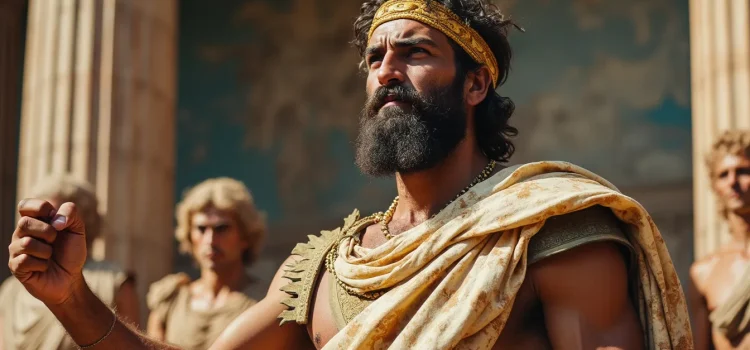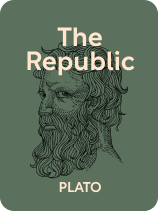

This article is an excerpt from the Shortform book guide to "The Republic" by Plato. Shortform has the world's best summaries and analyses of books you should be reading.
Like this article? Sign up for a free trial here.
How does wealth impact society? What are the consequences of a system where money equals power?
In The Republic, Plato explores different societal structures through the character of Socrates. According to Plato, an oligarchy is as a system where wealth determines political power. This concept is part of a larger discussion on the decline of ideal societies.
Keep reading to discover why Plato believed oligarchies fall short and how they shape both society and individuals.
Plato on Oligarchies
According to Plato, an oligarchy is a less-than-ideal societal structure—and one of four such systems he identifies in The Republic through the character of Socrates. After outlining the characteristics of an ideal society (the perfect city), Socrates recognizes that it cannot remain unchanged indefinitely. He argues that change is a constant in the physical world, and since the ideal city is already flawless, any alterations will be detrimental. Even minor negative changes will eventually lead to a broader decline.
Socrates illustrates this deterioration by describing four progressively worse types of cities:
- Timocracy: A society driven by honor and ambition
- Oligarchy: A society centered on wealth
- Democracy: A society focused on individual liberty
- Tyranny: A society dominated by oppression and mob rule
For each of these inferior cities, Socrates presents a corresponding personality type, much like how the philosopher-king embodies the values of the ideal city. This continues his parallel between societal justice and individual justice. We’ll explore the nature of an oligarchy and its representative individual, explaining its origins and why it falls short of the ideal city or philosopher-king.
Socrates explains that an oligarchy is a society where wealth is equal to political power. Wealth is equated with goodness and is a requirement for ruling.
A timocracy becomes an oligarchy when secret desires for luxury cause timocrats to continue accumulating wealth. As they do, they become less interested in personal excellence and more interested in managing their riches. This eventually erodes and then reverses their belief that wealth is corrupting. Oligarchies often have incompetent rulers, as wealth doesn’t translate to political skill. In addition, the sharp divide between rich and poor in an oligarchy creates further civil strife as the poor become vagrants and criminals.
(Shortform note: Oligarchy likely would have been the most common type of government during Plato’s time, as many ancient Greek city-states were run by a select group of wealthy aristocrats. However, not many historical accounts of these societies have survived. This makes it difficult to know if Plato’s description of oligarchy is based on other city-states or on periods of oligarchy during the history of Athens.)
The Oligarchic Man
According to Socrates, the oligarchic man is only concerned with making money. A political scandal or failure destroyed the life of his father—a timocrat. In an attempt to avoid poverty and misery by any means necessary, the oligarchic man abandons his moral principles and directs his ambition exclusively toward gaining wealth. He’s only honest when it benefits his reputation as a businessman and only restrains his hedonistic desires out of stinginess. In addition, he’s not courageous and gives up easily since he has to abandon any pursuit that might lose him money.
(Shortform note: Scholars argue that Adeimantus is the oligarchic man at the start of the dialogue, noting his repeated concerns early on about the material possessions of the ideal city’s ruling class. As the dialogue progresses, however, he becomes braver—calling out Socrates when he has questions and engaging more directly in debate. This newfound bravery suggests Socrates has elevated Adeimantus to a timocrat.)

———End of Preview———
Like what you just read? Read the rest of the world's best book summary and analysis of Plato's "The Republic" at Shortform.
Here's what you'll find in our full The Republic summary:
- Plato’s concept of justice
- Why living a moral life is good for its own sake
- How later philosophers interpreted and responded to the ideas in The Republic






